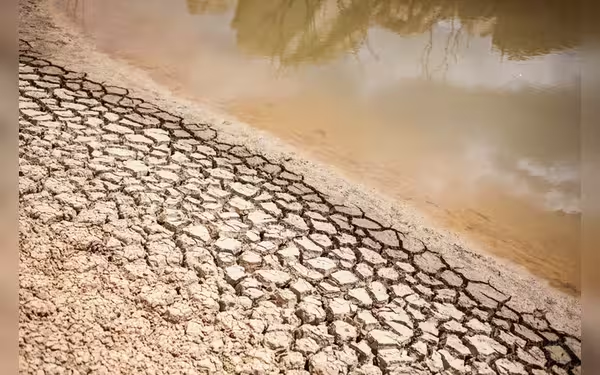Saturday, November 16, 2024 05:36 PM
GCF Chief Targets Funding for Vulnerable Nations
- GCF aims to support overlooked vulnerable countries.
- Duarte emphasizes urgent climate funding needs.
- COP29 to address global climate finance goals.
 Image Credits: arabnewspk
Image Credits: arabnewspkMafalda Duarte, GCF chief, targets funding for vulnerable nations facing severe climate challenges.
In recent years, the issue of climate change has become increasingly urgent, especially for developing countries that are often the most affected by its impacts. The Green Climate Fund (GCF), established under the 2015 Paris climate agreement, aims to provide financial support to these vulnerable nations. However, many of them have yet to receive any funding, which is where Mafalda Duarte, the GCF chief, steps in with a clear mission.
Duarte is focused on helping nations that have been largely overlooked by the GCF. These countries, which include Algeria, Chad, Iraq, and South Sudan, are facing severe climate challenges despite contributing little to global carbon emissions. The GCF was created to assist these nations in reducing greenhouse gas emissions and adapting to the adverse effects of climate change, such as extreme weather events and rising sea levels.
In her first year as head of the GCF, Duarte has identified 19 climate-vulnerable nations that have received little to no funding. She stated, “We are deliberately targeting those,” emphasizing the need to prioritize support for the most affected regions. Among these nations is Somalia, which has been devastated by floods and droughts, prompting the GCF to pledge over $100 million to help the country develop climate projects.
The GCF's funding will focus on initiatives like off-grid solar energy for rural communities and enhancing the resilience of the agricultural sector. Duarte highlighted the importance of adapting funding mechanisms to suit countries with weak institutional capacities, ensuring that aid reaches isolated populations despite security challenges.
Despite its noble intentions, the GCF has faced obstacles, including limited resources and a complex bureaucracy that makes it difficult for at-risk countries to access the necessary funds. As the upcoming COP29 climate summit approaches, streamlining the funding process will be a critical topic of discussion. Duarte aims to triple the GCF’s capital to $50 billion by 2030, a goal that, while ambitious, is still a fraction of the trillions needed to combat climate change effectively.
As of now, the GCF has committed $15 billion to 270 projects, with a significant increase in funding for the world’s poorest countries over the past year. However, experts warn that this amount is merely a drop in the ocean compared to the actual needs. At COP29, nations are expected to set a new global climate finance goal, but disagreements over its size and scope could hinder progress.
Duarte's message to governments is clear: “Be bold. We don’t have the luxury of waiting.” This call to action is crucial as the world grapples with the pressing realities of climate change. The future of vulnerable nations depends on swift and decisive action from the global community. As we move forward, it is essential to remember that the fight against climate change is not just about funding; it is about ensuring a sustainable future for all, especially those who are most at risk.













